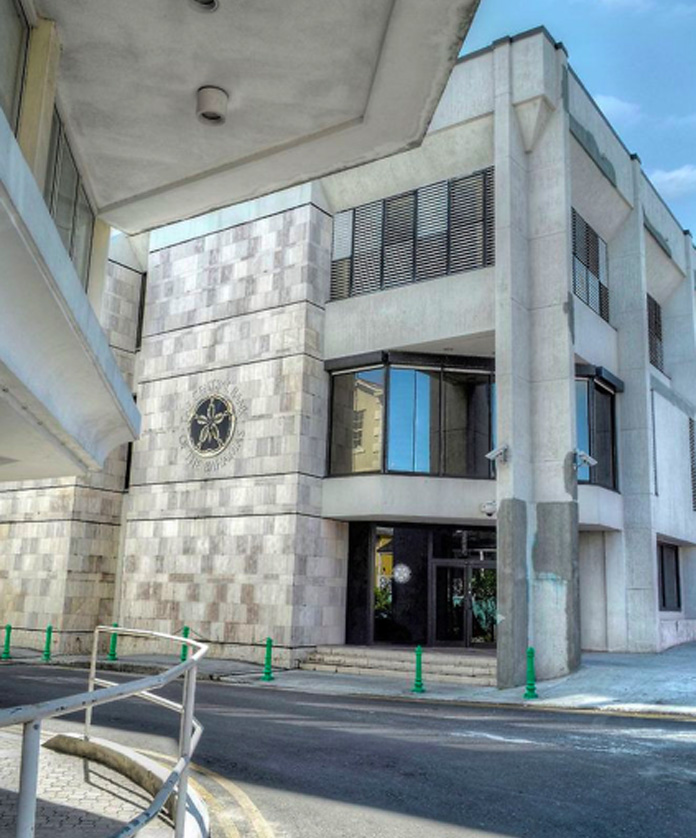More money can now leave the Bahamas!

Nassau, Bahamas (March 31, 2016) – The following is a statement by the Governor of the Central Bank:
In its role as Controller of Exchange in The Bahamas, and in line with its commitment to conduct periodic reviews of Exchange Controls, the Central Bank, after consultation with the Government, is pleased to announce additional liberalisation of measures and processes governing capital account (investments and borrowing) and current account (trade) transactions.
These measures take effect on April 1st 2016.
The current account items involve increased delegated authority for Commercial Banks and Money Transmission Businesses (MTBs), in respect of imports, education-related remittances, small gifts to non-residents and transfers outside The Bahamas by work permit holders. On the capital side, areas affected include investments abroad, and borrowing inside the Bahamas by temporary residents and work permit holders.
These reforms are expected to result in enhanced efficiencies for both residents and temporary residents as they conduct their personal business transactions, and seek to invest in The Bahamas or abroad.
Under delegated authority, commercial banks and money transmission businesses are able to approve certain applications to purchase foreign currency, within specified dollar limits, without prior reference to the Central Bank, once customers provide evidence of the external obligation or need. In the absence of delegation, sales of foreign exchange may only be accommodated after the approval from the Central Bank has been provided.
During the month of April, the Central Bank will conduct a series of seminars with commercial banks and MTBS to ensure a smooth and swift transition to the enhanced regime.
A. ADJUSTMENTS TO PRESENTLY DELEGATED CURRENT ACCOUNT ITEMS
· With respect to gift remittances to non-residents, the Central Bank has increased the approval authority limit extended to Commercial Banks and MTBs to $5,000 per transaction. Approval for gift amounts in excess of this amount will require prior reference to the Central Bank.
· The limit for tuition and other Payments to Educational Institutions, now set at $25,000 per transaction, has been adjusted without limit to the amount on the bill.
· The limit for Remittances to Students Attending Educational Institutions Abroad, now set at $2,500 per transaction, has been adjusted to $5,000 per transaction. This includes payments of any nature made directly to student such as for room and board, transportation or periodic allowances.
B. NEW DELEGATED ITEMS
For the following items, which previously required direct application to the Central Bank, the specified individuals and/or entities may now go directly to Commercial Banks to conduct their business:
· Companies that are wholly Bahamian owned, and/or Bahamian individuals with the requisite licences, may now go directly to commercial banks to convert up to $25,000 for oil imports. Documentation requirements are the original invoice regarding the transaction; proof of ownership of the relevant business, and a copy of the relevant business licence.
This measure is mainly designed to facilitate business for small suppliers on the Family Islands.
· Companies that are wholly Bahamian owned, and/or Bahamian individuals with the requisite licences may now go directly to Commercial Banks and MTBs to convert funds of up to $5,000 per transaction in respect of non-oil Imports, where payment is to be made to an individual. Documents that must be presented to the bank are the original invoice, proof of ownership and copy of business licence.
· Temporary Residents––that is, contract workers/holders of work visas––who were previously required to approach the Central Bank for approval to convert a portion of their salaries to foreign currency, may now go directly to Commercial Banks to transfer salaries and accumulated savings abroad, within the limits of their salaries as confirmed by their respective employers. The prior approval of the Central Bank will still be required for the conversion of any extraordinary income (such as funds from sale of real or personal property).
Without exception, appropriate documentation must be presented to satisfy the selected Commercial Bank or MTB’s due diligence requirements, including Immigration authorisation.
· Foreign owned companies operating from inside The Bahamas (such as international banks) may now obtain B$ corporate credit cards with limits of up to B$25,000 for staff, to facilitate official business, without reference to the Central Bank. Previously, such companies were not permitted to access Bahamian Dollar credit, unless they had the prior approval of the Central Bank.
C. AMENDMENTS TO CAPITAL ACCOUNT TRANSACTIONS
Delegated Authority
The following items do not require reference to the Central Bank of The Bahamas.
· Temporary Residents borrowing jointly with their resident Bahamian spouses, may borrow in Bahamian dollars, without limit, without reference to the Central Bank, to finance owner-occupied residential dwellings. Borrowing by such individuals for investment purposes will still require prior Central Bank approval.
· Temporary Residents who have resided and worked in The Bahamas for at least three years may borrow up to $400,000 in Bahamian dollars, without limit, without reference to the Central Bank, to finance owner-occupied residential dwellings. Investments would have to be registered with the Central Bank, for statistical purposes and to facilitate efficient processing in the event the investor wishes to sell the property in the future. Previously, temporary residents were able to borrow up to B$200,000 only.
Items Requiring Application to the Central Bank
The following items require formal application to the Central Bank. However, they represent a relaxation of existing restrictions.
· For direct investments, residents may now purchase up to $2 million per person or per entity from Commercial Banks, subject to an overall limit of $10 million per investor group, per investment transaction. This facility may be accessed once every three (3) years. Investments that would qualify for this treatment would be deemed “Special Criterion” investments, meaning that they are seen to have clear potential for a positive impact on The Bahamas’s balance of payments. Previously, the special criterion investment amount that was permitted was up to $1 million per person or entity, within an overall limit of $5 million per investor group.
The above item does not refer to portfolio investments by residents. These must still be financed through the Investment Currency Market, operated by the Central Bank.
· The allocation for residents to invest in Publicly Traded Foreign Securities Listed on BISX as Bahamian Depositary Receipts (“BDRs”) has been increased to $35 million, provided that amount is not equivalent to more than 5% of the external reserves of the country at the end of the previous year. This represents an adjustment from an allocation of up to 5% of external reserves at previous year’s end, on an annual basis, not to exceed $25 million. These transactions will continue to be conducted within the existing operational framework, whereby BDRs are structured by local broker/dealers, subject to appropriate approvals from the Central Bank, the Securities Commission of The Bahamas and BISX.
D. Exchange Control Counter Operations
The public has become accustomed to walk-in service at the Central Bank for a range of transactions. In this regard, the Bank takes this opportunity to remind members of the public that, as approval authority for most goods and services (such as for gifts, travel, tuition, medical expenses) items has been delegated, applications to the Central Bank are not required in most personal instances.
The Central Bank will continue its review of the Exchange Control regime, and recommend enhancements to the Government, as appropriate and prudent to enhance operational efficiency and effectiveness.
All queries regarding these changes should be directed to the Exchange Control Department to the following e-mail address: ecd@centralbankbahamas.com, or by contacting the Department’s Help Desk at 302-2777. Additional detail may also be obtained online at www.centralbankbahamas.com.







